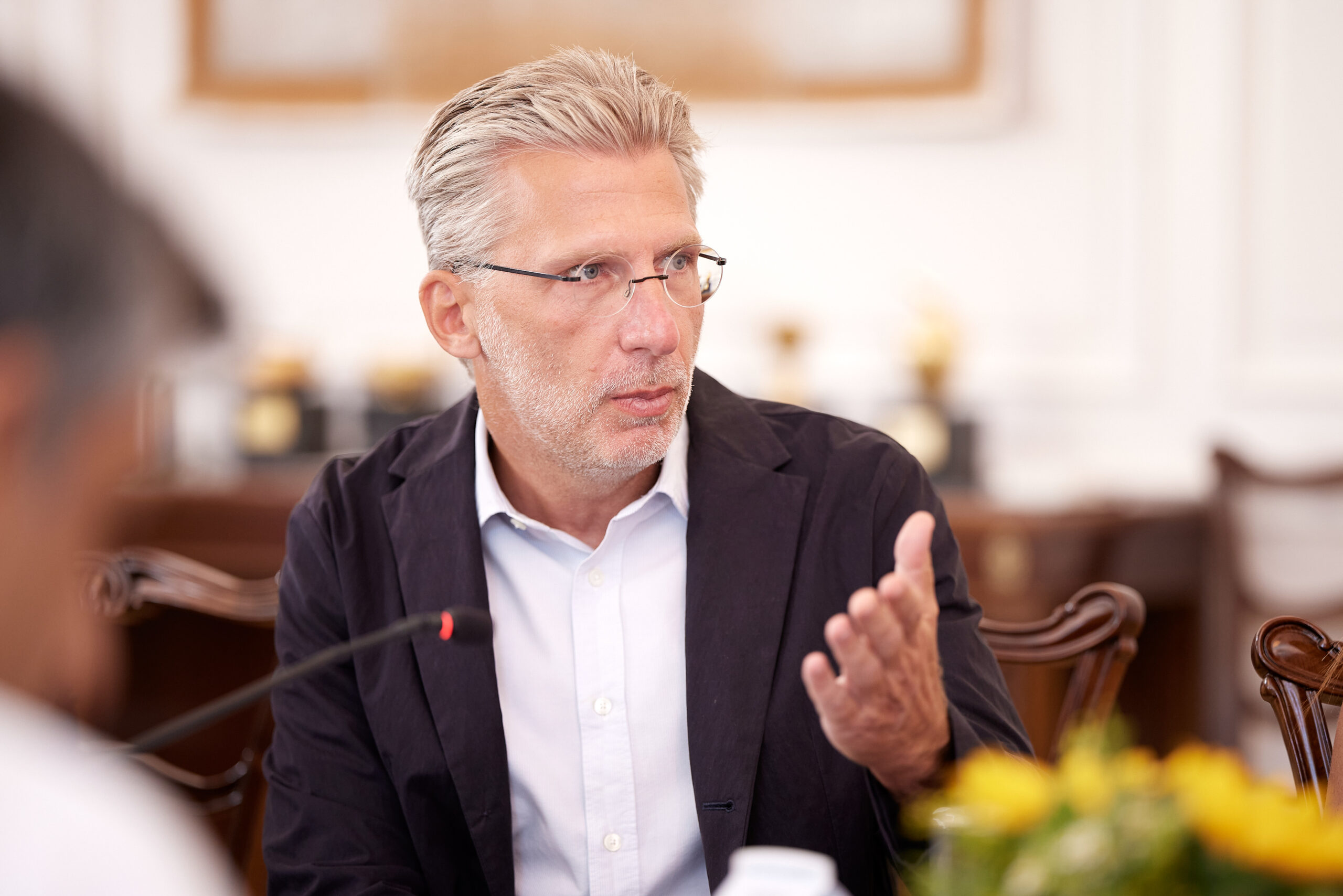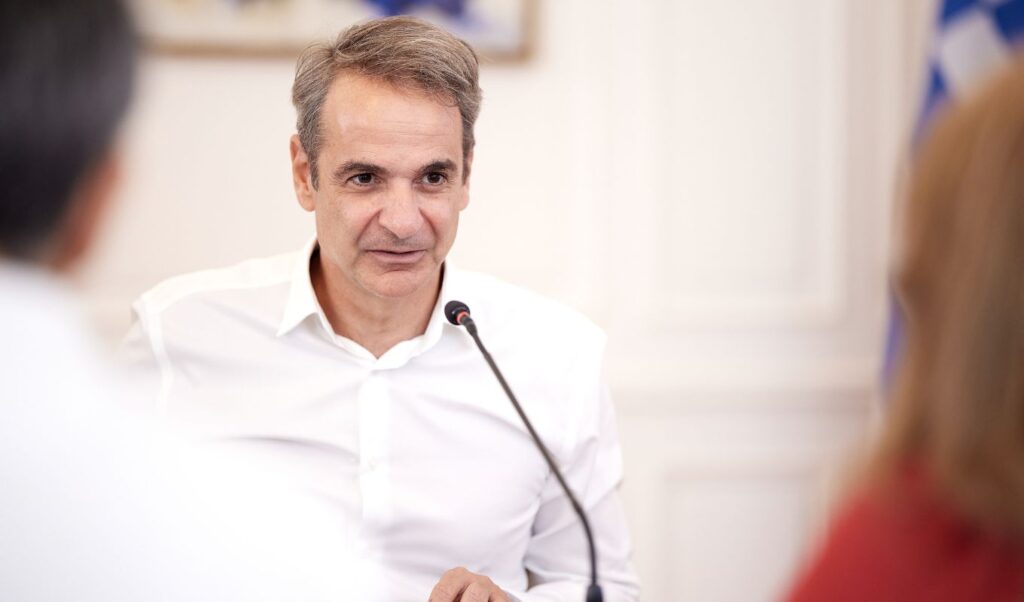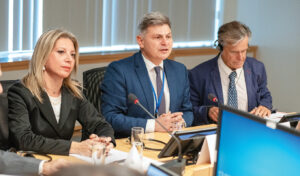Prime Minister Kyriakos Mitsotakis met today at the Maximos Mansion with representatives of the disability community to discuss the progress of the “Home Accessibility” program, through which the state subsidizes works for the first time, such as ramp construction or elevator installation, ensuring unobstructed access for people with disabilities to their homes or workplaces.
Read: “Home Accessibility”: Platform opens for people with disabilities – Grants up to €14,500
During the meeting, the Prime Minister announced that the program’s budget will be strengthened with national resources of €10 million, reaching €34 million total, to serve more citizens. This comes after approximately 2,500 applications were submitted within just 24 hours of the platform’s launch (prosvasimotita.minscfa.gov.gr) last week, corresponding to almost the entire initially available resources.
During the program’s progress presentation by Social Cohesion and Family Minister Domna Michailidou, it was noted that eligible works were selected following dialogue with disability community organizations to have maximum impact on the daily lives of people with disabilities and chronic conditions.
In this context, “Home Accessibility” covers work in primary and holiday homes, both owned and rented, common areas of apartment buildings, and workplaces.
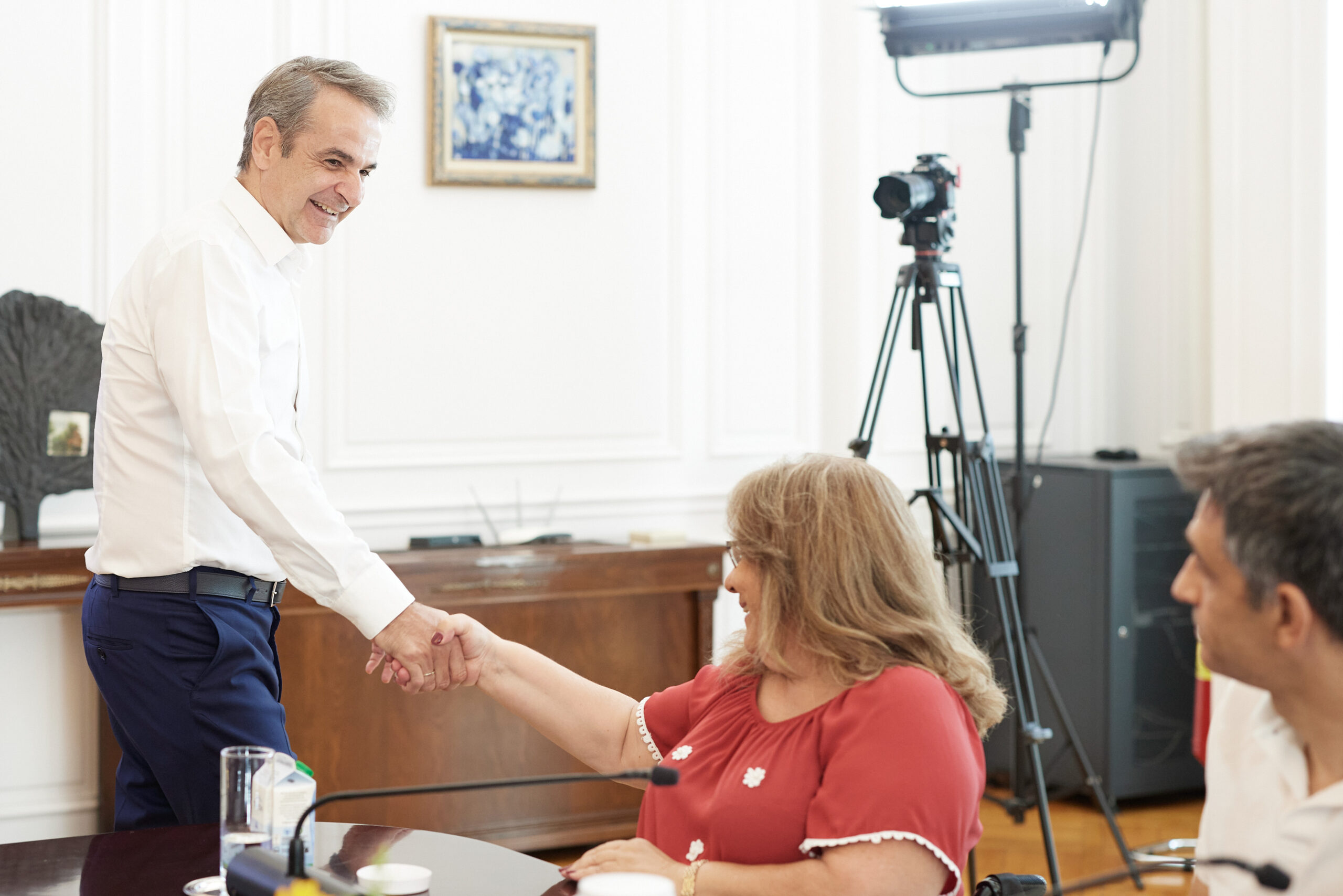
“Our home is our refuge. Especially for fellow citizens with disabilities, the ability to move comfortably within their homes without feeling they’re making compromises from what they would expect is extremely important. I’m pleased we can come as a state, utilizing European and national resources to cover this important need,” the Prime Minister emphasized.
“The first word should belong to the direct beneficiaries, so they can help us refine the program’s design, because only you can know the specifics of each case,” Kyriakos Mitsotakis added.
Eligible interventions include accessibility measures for mobility disabilities, such as ramp construction or modification, elevator or special lift installation, bathroom reconstruction for wheelchair use, and interior space adaptation, as well as interventions for sensory disabilities (vision, hearing), such as audio and light signals, notification lights for calls/alarms, hearing enhancement systems or sensory guidance systems, and digital assistive devices (speaking devices, screens with special functions).
For mobility disability interventions, subsidies reach up to €12,000, and for sensory disability interventions up to €5,000.
When combined interventions are required, the subsidy amount increases to up to €14,500. Fifty percent of the grant is advanced upon application approval.
Payment is completed after verification of work completion.
Program beneficiaries are individuals with disability percentages of 67% and above and individual income up to €60,000.
Meeting a long-standing demand
Disability community organization representatives welcomed the program, emphasizing it meets a long-standing demand.
“This is a program we’ve been requesting for years, both as ESAmeA, the disability movement, our associations, and everyone in our discussions. It’s extremely important because our disability is determined by accessibility,” noted Korina Theodorakaki, Secretary of the National Federation of Mobility Disabled (EOKA). “It’s a pioneering action and we must say it – this has never been done before,” she added.
“Cooperation with the National Confederation was excellent and productive. Moreover, with applications in such a short time, it’s self-evident that its success is significant,” stated Vasilis Koutsianos, General Secretary of the National Confederation of People with Disabilities (ESAmeA).
“The National Confederation, along with its member organizations, has been advocating for this specific program since 2015, Mr. President. Therefore, it’s very important that it’s being implemented, albeit with delay, and we must be fair to credit this to you, because this is your effort,” he continued.
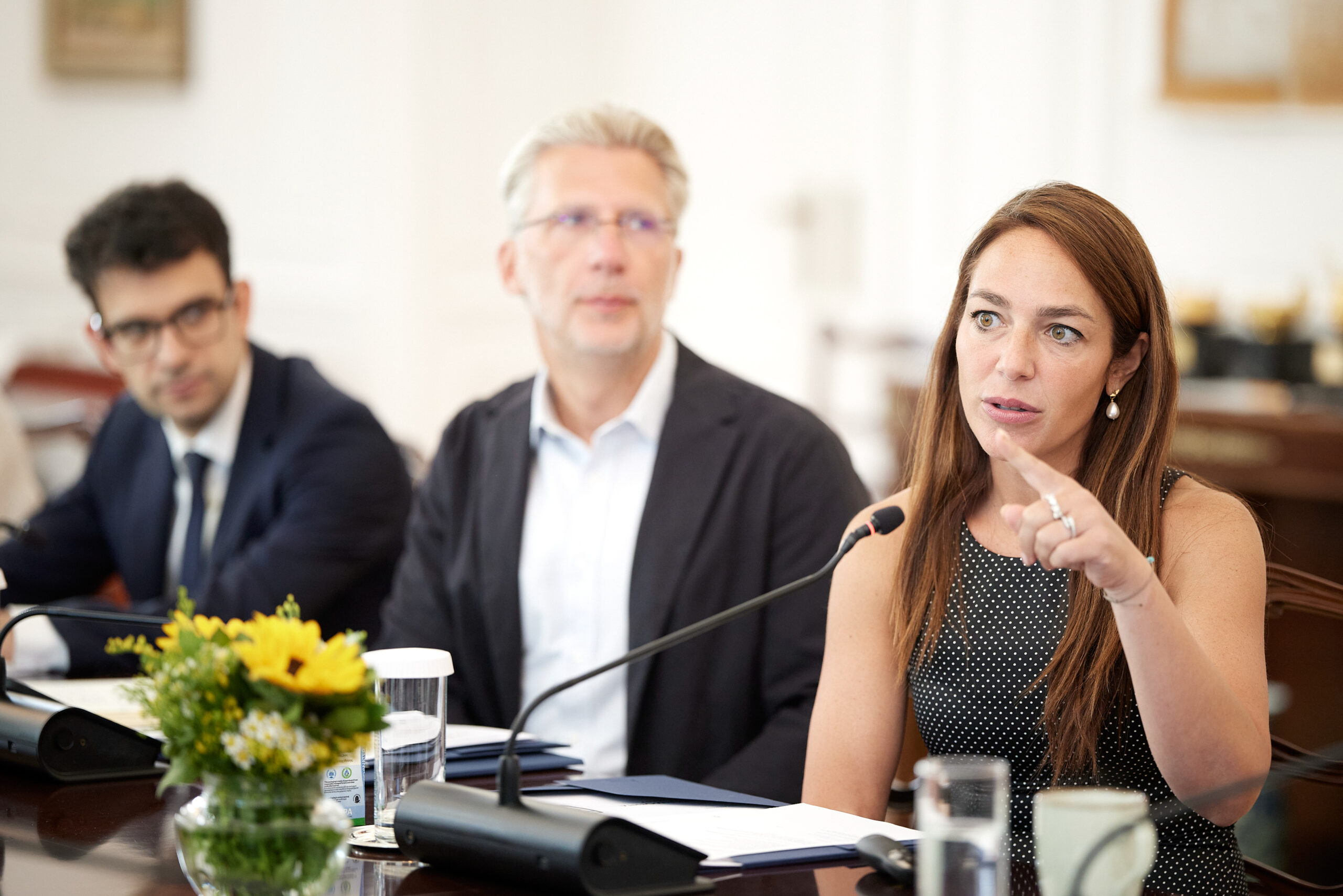
Christos Koromilas from the Board of Directors of “Lighthouse for the Blind” highlighted the platform’s ease of use: “It’s the only program I managed to execute alone, from my phone. It was so easy, three steps, everything pre-filled and ready.”
Vice President of the Rare Diseases Union of Greece, Dimitris Athanassiou, also expressed satisfaction with the program.
“We couldn’t believe it when we learned about it,” he said characteristically, emphasizing the importance of prevention. “Disability for us is a pathway: prevention, early diagnosis, and treatment with these measures. We believe prevention measures will also come,” he noted.
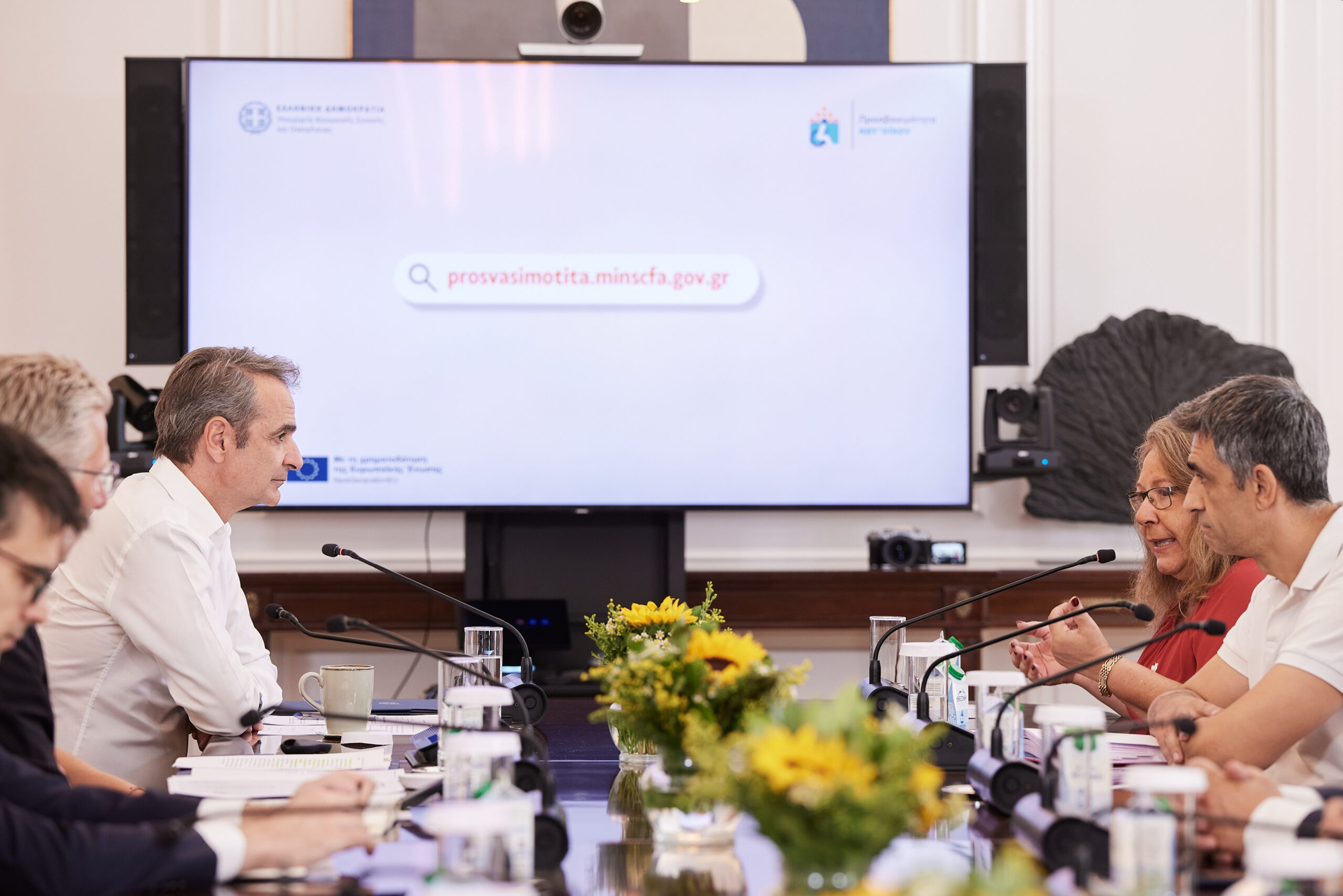
The “Home Accessibility” program is part of a broad network of actions for equal access of people with disabilities to the job market and society.
During the meeting, particular reference was made to the initiative for subsidized replacement of conventional wheelchairs with electric ones. It was also emphasized that interventions in public school sanitary facilities, within the “Marietta Giannakos” program framework, necessarily include access infrastructure installation.
Mitsotakis: A program for you, with you – We don’t stop here
At the meeting’s conclusion, the Prime Minister stated: “Thank you again for your presence, your kind words, and allow me briefly four observations and one request.
First observation: since 2019, our government has sought, through central coordination from Maximos Mansion, to implement a comprehensive strategy – for the first time I believe in our country’s history – for addressing issues of people with disabilities.
I think we have many positive examples of successful initiatives, designed with your participation – and I want to thank you for this – and implemented by different Ministries, under central coordination by the Ministers of State, George Gerapetritis, Stavros Papastavros, and now Akis Skertsos, whom I want to thank personally, because he truly embraced this great complementary responsibility alongside his already burdened duties.
You also referred to some relatively recent actions that constitute priorities for us. Non-reversible conditions were a Greek absurdity in the disability certification system, and I think we’ve made significant steps to correct it. I always prefer to be more bold, even if someone might mock us, rather than the opposite. Because forcing someone to the ordeal of certifying a non-reversible disability, a non-reversible illness, is the definition of absurdity and I’d say the definition of contempt. It’s the opposite, the absolute opposite of empathy, which you mentioned, that must guide all our strategies.
The same applies to recent initiatives we took for fellow citizens with deafness, hearing problems, interventions we’ve made regarding KEPA accessibility. I recently visited our facility in Galatsi. I think we’ve made significant progress, but much more needs to be done. I’ll return to this later.
Second point: this program we’re discussing today was funded by the Recovery and Resilience Fund with €24 million and is another tangible example of how European resources can ultimately result in truly beneficial, I’d say life-saving actions for fellow citizens who need such support most.
The program is €24 million and we’ll add another €10 million from national resources, so we can cover even more fellow citizens who have already applied since the platform opened.
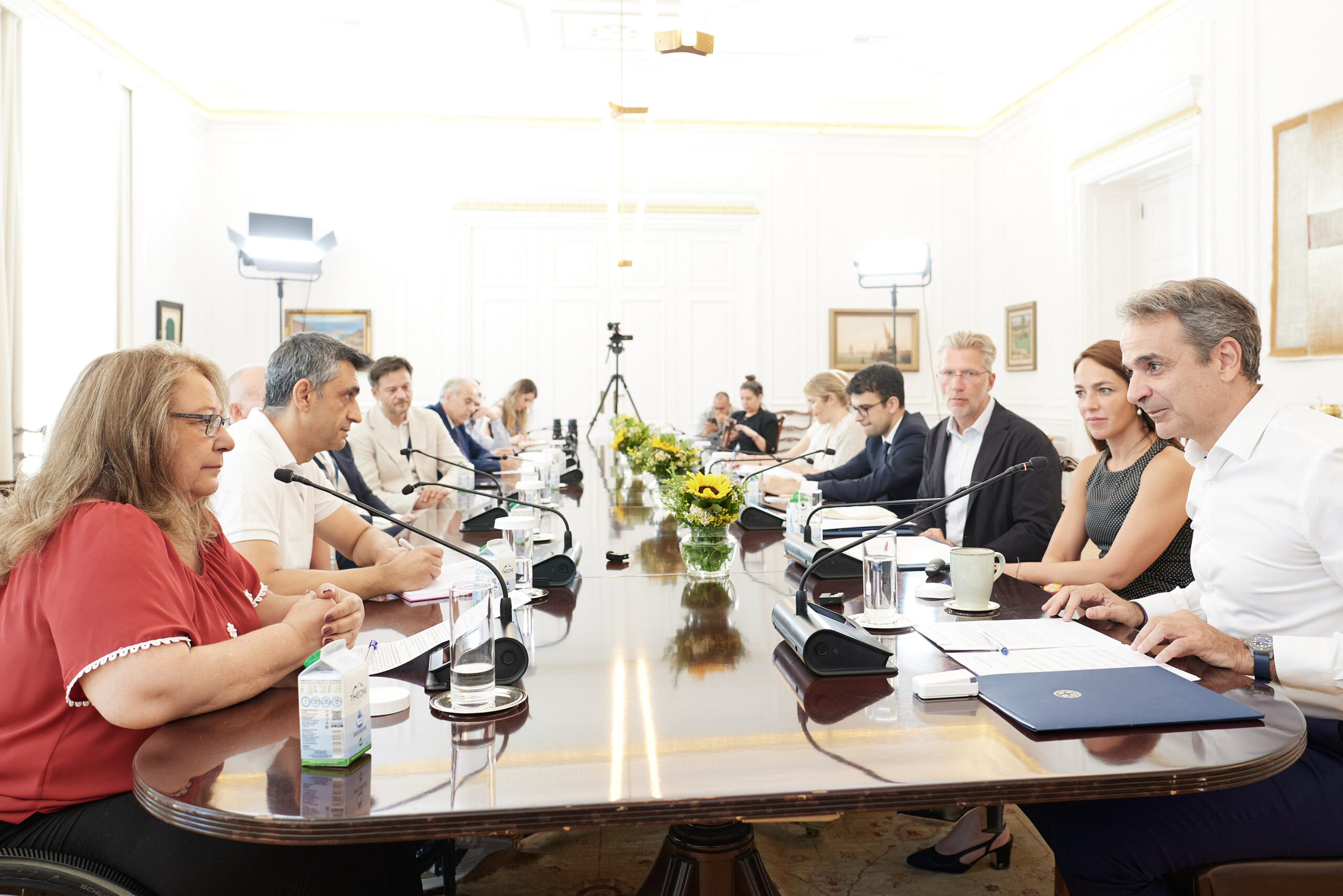
Third point: your words are the best proof of how we can design a program for you, with you. The first word should belong to the direct beneficiaries, helping us refine the program’s design, because only you can know each case’s specifics.
Why do I attach such great importance to this program? Because our home is our refuge. Especially for fellow citizens with disabilities, the ability to move comfortably within their homes without feeling they’re making compromises from what they would expect is extremely important.
I’m pleased we can come as a state, utilizing European and national resources to cover this important need of yours.
Again, I thank ESAmeA, because we’ve developed a truly sincere and constructive dialogue, and you can guide us with what I’d call demanding realism about what we can do to help all our fellow citizens with disabilities.
Fourth point: obviously we don’t stop here. We have a series of new actions we’re still planning. I’m particularly interested in wheelchairs, because I understand that for a fellow citizen with mobility disability, the wheelchair is their door, essentially the necessary tool to make accessibility a reality, but also active participation in economic and social life, the possibility of autonomous movement.
Indeed, having seen technological progress while simultaneously seeing many wheelchairs still used by fellow citizens with disabilities, yes, I believe we can do something better and more through EOPYY to financially strengthen fellow citizens in acquiring more modern wheelchairs, which I believe can make a decisive difference in your quality of life.
Now my request: because many mobility disabilities unfortunately relate to accidents, usually traffic accidents, we would like your participation in this great effort we’re making through the new Traffic Code to share your stories, so we can avoid to the extent possible, at least limit, creating a new generation of mobility disabled, mainly young people who in their youthful enthusiasm don’t realize that a momentary choice could lead them to a wheelchair for life.
I think your participation in such a public awareness effort, especially for the young generation, would have great significance, because you would largely convey your personal experiences.
So let me stop here. Thank you again for your presence. Let me express my wish, not to say certainty, that the program will be implemented exactly as we’ve designed it.
There will always be minor difficulties, but we’re here to address them, and with joy, within the timelines set, we can within months visit the first fellow citizens who will have installed infrastructure in their homes making accessibility within their homes simpler and easier.”
For her part, Social Cohesion and Family Minister Domna Michailidou emphasized: “Accessibility is not luxury, it’s a right.
For the first time, with the ‘Home Accessibility’ program, we provide direct funding to citizens with disabilities to modify their homes or workplaces according to their needs.
The great participation in the prosvasimotita.minscfa.gov.gr platform from the very first days shows both the program’s great success and its necessity. Within five days, over 4,800 applications were submitted. Therefore, by decision of Prime Minister Kyriakos Mitsotakis, the program’s budget is immediately strengthened with an additional €10 million to support even more fellow citizens with disabilities.”
Minister of State Akis Skertsos also participated in the meeting.
